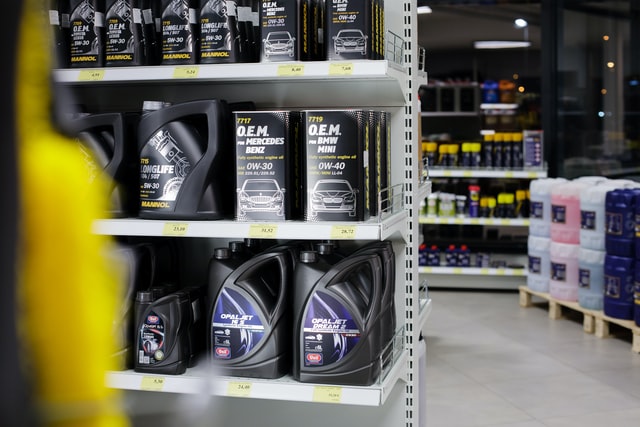Synthetic oil isn’t new to the market by any means, but in recent years, it has moved from being found most commonly in high-performance cars to a more mainstream alternative for drivers everywhere. However, synthetic oils come at a higher price and while blended alternatives can be a little cheaper, you might be wondering if it’s worth paying that bit more in the first place. We’ve pulled together the facts to help you decide.
What is synthetic oil?
Unlike conventional oil, synthetic oils are precisely what the name suggests – synthetic. Synthetic oils are typically made from base oil, powder additives and a carrier oil that helps to distribute the additives throughout the liquid evenly. Pure synthetic oils use a synthetic base that is formed without petroleum elements. In contrast, a synthetic blend offers the best of both worlds by utilising a mix of both conventional and synthetic bases.
The Pros
- Consistency
Synthetic oils are crafted manually, meaning that it’s possible to create a kind of consistency not only between batches but also within the oil itself. The molecules within synthetic oils can be similar lengths, meaning that they cause less friction throughout the engine and between certain parts.
- Robust
Synthetic oils are typically stronger than conventional oil in that they are more resistant to breaking down. In fact, synthetic oils can typically keep performing at a high standard for anything from 10,000, to 12,000 miles depending on the oil and driving conditions.
- Cleaner Alternative
Generally speaking, pure synthetic oils are less volatile than conventional alternatives. The base oils used can handle longer periods between changes and as a result, reduce the overall oil consumption. They offer much cleaner use, too – Conventional oils can burn off and leave deposits on the engine components. Synthetic oils improve in this area, meaning they’re not only cleaner for the environment but also physically cleaner.
- Temperature Resistance
Conventional oils typically become thick and viscous over time due to the burning of hydrocarbons in the molecules. The higher the temperature and the longer they’re in the engine, the thicker they become. Synthetic oils, on the other hand, have better heat transference, meaning that they last longer and can even help to cool the engine.
The Cons
- Expense
Synthetic oils are notoriously more expensive than conventional alternatives and while the performance and longevity can often offset that cost, for some of us it’s just not possible to make the switch. The quality of the oil lends itself to a higher cost and the high cost of production certainly adds to the final asking price, but it’s worth considering how far a synthetic oil change will take you compared to conventional alternatives. Where conventional oil will last around 3,000 miles, synthetic oil can last up to 10-12,000 miles, meaning it’s an investment that may be worthwhile.
- Older cars may not be compatible
If you have a car from before 1990, your vehicle may not be compatible with synthetic oils, and it all comes down to the oil sludge. Conventional oils offer deposits that older vehicles can use as part of the sealing in the system, whereas synthetic alternatives clean this sludge out. This could result in oil leaks and ultimately damage the engine. If you’re unsure whether your vehicle is compatible, get in touch with our team for advice.
- Brand new cars may suffer efficiency problems
New vehicles need a certain level of friction within the engine to break in the moving parts and unfortunately, most synthetic oils don’t offer this friction at the needed level at first. Without this friction, the parts can be limited in their breaking in and, ultimately, not run as efficiently as they should. Using conventional oils for the fill and change can give your vehicle the chance to break itself in before switching to synthetic. Your vehicle’s handbook will give you all the information you need about the oils you should be using, however, so make sure to consult this first.
- It isn’t good for rotary engines
As part of their operation, rotary engines deposit small amounts of motor oil into the combustion chamber of the vehicle in order to lubricate the apex seals. When using synthetic oils, this can actually cause harm – the deposits can become sticky on the seals and ultimately lead to issues with operation. If your vehicle has a rotary engine, it may be best to stick with conventional oils or speak to an expert for advice.
For more information about synthetic oils, how they can affect your engine or whether you should make the switch with your vehicle, we’re on hand to help. Simply get in touch with a member of our team, today.

